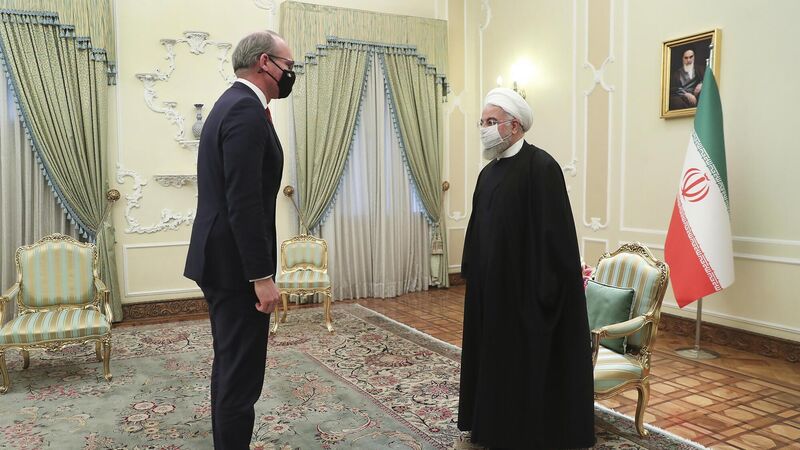Letters to the Editor: Don’t forget Lebanon as Coveney heads to Iran

President Hassan Rouhani, right, and Foreign Minister Simon Coveney greet at the start of their meeting in Tehran, Iran. Picture: AP
Try from €1.50 / week
SUBSCRIBEMinister Simon Coveney’s visit to Tehran should be welcomed during what is a pivotal time not just for the revival of the Iran nuclear deal but also the wider issues affecting the Middle East.
Without a functioning government, Lebanon’s social and economic decline continues at a rapid rate.
Already a subscriber? Sign in
You have reached your article limit.
Annual €130 €80
Best value
Monthly €12€6 / month
Introductory offers for new customers. Annual billed once for first year. Renews at €130. Monthly initial discount (first 3 months) billed monthly, then €12 a month. Ts&Cs apply.
Newsletter
Sign up to the best reads of the week from irishexaminer.com selected just for you.

Select your favourite newsletters and get the best of Irish Examiner delivered to your inbox
Sunday, February 8, 2026 - 7:00 PM
Sunday, February 8, 2026 - 6:00 PM
Sunday, February 8, 2026 - 7:00 PM
© Examiner Echo Group Limited